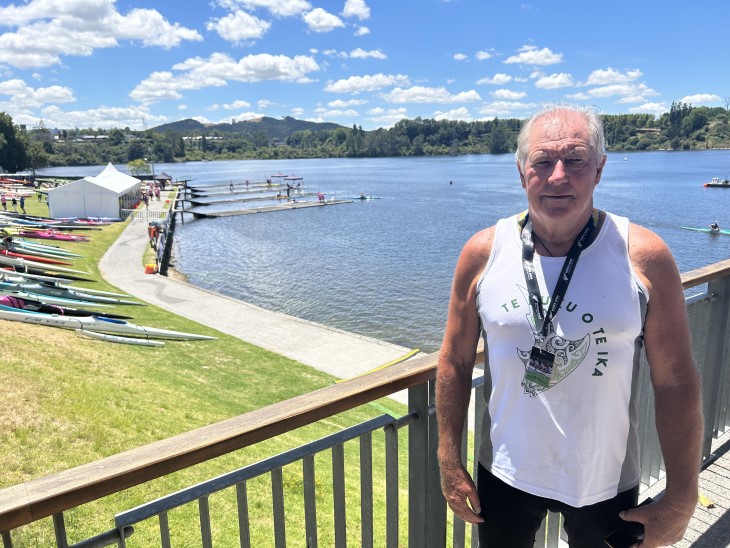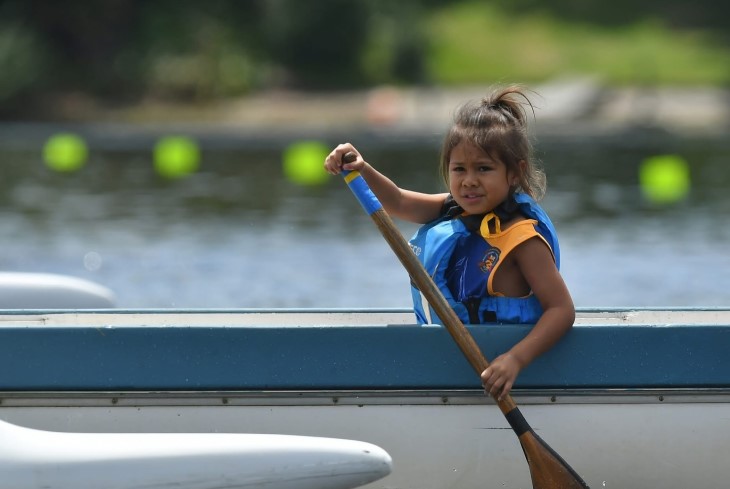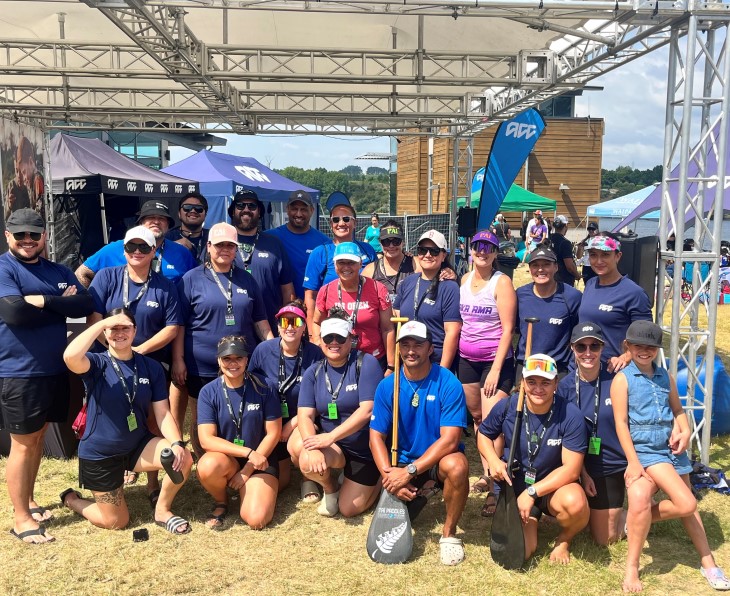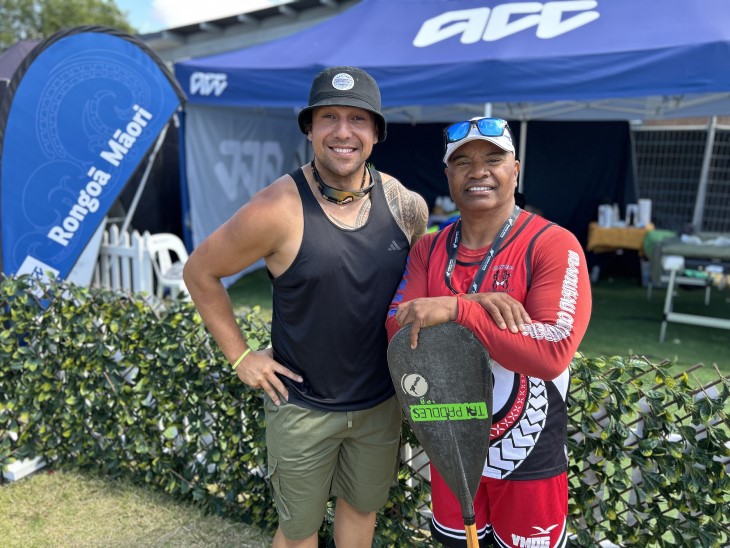‘Fluffy Slippers’ paddle on in waka ama

Veteran paddler Mike Hickson has been to nearly all the ACC-supported Waka Ama Sprint Nationals over the last 35 years. He now competes in the masters’ category with a team whose cute name belies its competitive nature.
Don’t be fooled by the name.
There’s nothing soft about the Fluffy Slippers, who paddled at the Waka Ama Sprint Nationals at Lake Karāpiro last month.
Team member Mike Hickson says they race fiercely on the water.
Mike’s been to the Waka Ama Sprint Nationals a total of 32 times out of the 35 years it’s been running.
The 71-year-old experienced his first sprint nationals in 1991 and says there’s been a lot of change over the years.
Mike remembers the Masters’ 60s category being almost a novelty event.
“There were a couple of the original paddlers who got put in canoes at one end and they’d paddle down and everybody gave polite little claps,” he remembers.
“Now one of the guys on my team competes in the Masters’ 80s event and he’s very competitive.”
The Fluffy Slippers hail from Tauranga.
Their club is based at Pilot Bay in Mount Maunganui, where they have access to both the harbour and the open ocean.
The name came about many years ago after someone made a comment referring to the age demographic of the team.
“We were at a local regatta and there were a group of us on the beach who decided to throw a team together and go into this race,” Mike says.
“The lady who was registering us asked what our team name was and somebody made a comment, something like ‘You should be at home with your fluffy slippers on.’
“We said, ‘That’ll do.’ That was probably 20 years ago and the name’s just carried on.”
Paddling for fun and wellbeing
Mike took part in the Masters’ 70s event this year.
He has international pedigree to call on after finishing third in the Masters’ 70 V1 Division at the World Championships in Hawaii last year.
“That was probably the pinnacle of my paddling – to be up against some real hard racing and other paddlers from all around the world,” he says.
“I was very proud and hopefully it’s a bit of an inspiration for the family and other paddlers to come through and do it.”
Mike says the physical benefits from waka ama are huge.
“I see a lot of people who get to my age and they’re old men – they can't do the things they want to do, like run around with their grandkids.
“Waka ama is great because people who have old running or rugby, hip or knee injuries can still get out there and paddle.”
A lot of people get a lot of enjoyment from just being out on the water, Mike says.
“One of the things I try and push with my own club is that you don’t have to be a world champion or win – just get out there and enjoy it.”

Bringing the generations together
The Waka Ama Sprint Nationals have become the biggest event of their kind in the world.
But Mike says it still remains a very family-orientated affair.
“Some of the guys I paddled with 20 to 30 years ago are now there with their kids and their grandkids,” he says.
“It’s amazing seeing all the generations paddling. I remember a long time ago one little kid in our canoe with his dad, he would have been only about three-years-old, holding a little paddle. Now he’s steering one of the top open men’s teams.
“It’s pretty special to be a part of. There’s so much passion that everybody puts into it and it just keeps on growing and growing.”
Lots of competitors have become friends of Mike’s over the years.
“We’re fierce competitors on the water but we all shake hands after the race and are good mates off the water.”
Improving health outcomes for Māori
Paddlers and their whānau from all over Aotearoa came together last month to celebrate 35 years of the Waka Ama Sprint Nationals.
The event has come a long way since the humble beginnings of the inaugural meeting in 1990.
Around 380 races were held over the seven days, making the Waka Ama Sprint Nationals the biggest event of its kind in the world.
Andy Milne, ACC’s Deputy Chief Executive of Strategy, Engagement and Prevention, says we’re proud to support the event.
“We’re committed to supporting kaupapa like waka ama that promotes the health and wellbeing of whānau of all ages,” Andy says.
ACC hosted a Whānau Zone for supporters, paddlers and wider whānau to relax and watch the racing, as well try rongoā (traditional Māori healing).
Our research shows Māori are more likely to experience a serious injury than non-Māori but are less likely to make an injury claim.
“We’re focused on ensuring Māori are aware of the support they’re entitled to following an injury,” Andy says.
“Community events like waka ama help us to raise awareness and build understanding around ACC services that improve access and health outcomes for Māori.”
Supported by mana whenua Ngāti Korokī Kahukura and Ngāti Hauā, and run by Waka Ama New Zealand, the Waka Ama Sprint Nationals took place in January at Lake Karāpiro in Cambridge.
Find out more on the Waka Ama New Zealand website.




